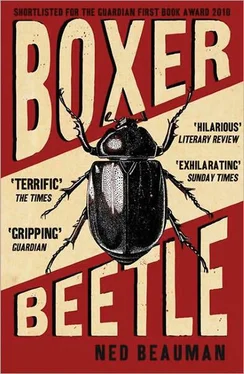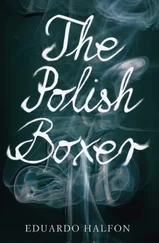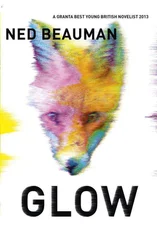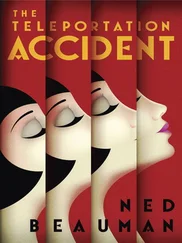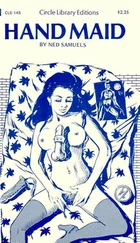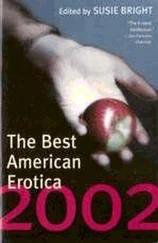‘What’s next for you, then?’ said Kölmel in the dressing room. Here they were, today, with Sinner slumped in his green throne and Kölmel standing there like a supplicant; it didn’t reflect how things really were, but it still gave Sinner pleasure.
‘I want to go to America,’ Sinner said. ‘New York City.’
‘I mean your next fight.’
‘Don’t know. Ask Frink.’
‘What do you want to go to America for?’
‘Proper money over there. And you get treated like royalty, they say.’
‘Tossers, Americans. Except my half-brother.’
Sinner shrugged again. He thought of his father, whose journey from a village in eastern Poland had ended at the Jewish shelter on Leman Street only because he’d been thrown off the ship that was going to take him to the United States.
‘You’re talkative tonight, ain’t you?’ said Kölmel. ‘Got a girl waiting?’ He was ugly when he smiled. ‘Course you do. Give her a good hard one from me, son.’ Kölmel didn’t know what Frink knew.
After Kölmel left, Sinner drank a little more gin, got dressed, and then telephoned for a cab to take him from Bethnal Green to Covent Garden.
AFTER THE DAY’S ROUTINE SPEND YOUR EVENING AT
The Caravan
81 ENDELL ST.
(Corner of Shaftesbury Avenue, facing Princes Theatre)
Phone: Temple Bar 7665
London’s Greatest Bohemian Rendezvous
said to be the most unconventional spot in town
ALL NIGHT GAIETY Dancing to Charlie
PERIODICAL NIGHT TRIPS TO THE GREAT
OPEN SPACES, INCLUDING THE ACE OF SPADES, ETC.
The West End was littered now with these little cards, but Sinner had heard about the Caravan’s opening straight from its founder, Will Reynolds, a gambler, boxing enthusiast and well-known Soho rake who had been determined to make the worst possible use of a £300 inheritance from a Presbyterian great-aunt. The basement club was decorated in a nonspecific oriental style, with lacquered furniture, red hanging lanterns and painted silk drapes. Tonight, as every night, it was teeming. The band played ‘When I Take My Morning Promenade’. Later there would be a drag show.
Sinner liked coming here straight from a fight without bothering to wash. All the other men were so soaped, even perfumed, but he just stank, and in the crush at the bar they couldn’t ignore it. It was like walking around with his cock out. A few people greeted him, but he was already sick of talking tonight so he bought a double gin and stood at the end of the bar scanning faces. After a minute or two he noticed a good-looking boy of nineteen or twenty, with a French sort of bent nose, standing there with his thumbs in his pockets looking lost. Sinner shouldered through the crowd. He put a hand on the boy’s arm and bent towards his ear to be heard over the music, lightly brushing the boy’s crotch with the back of his other hand as he did so. ‘You waiting for anyone in particular?’
‘No.’
‘Come on, then.’ Sinner pulled him towards the door.
‘Who are you?’
‘It don’t matter.’
‘Where are we going?’
‘Hotel de Paris on Villiers Street. I’ll pay. They know me. You been before?’
‘No, I don’t really … I mean. …’
Sinner never had any trouble. In a club like this, even the boys as beautiful as Sinner would usually join in the flirtation and gossip. That was why you came to the Caravan instead of just hunting in the dark at the Piccadilly News Theatre. But Sinner didn’t have to bother with that — there was something in the way he looked at you and the way he spoke to you. Or at least there was the first time — hardly anyone ever went with him a second time, not only because Sinner himself lost interest, but also because you were still too bruised and shaken, particularly if, like this French boy, you’d been unlucky enough to meet him on a night when he still had half a fight caged in him. Even if you’d been warned, though, you still didn’t turn him down. The best you could do was to pick up another pint of gin on the way so there was a chance that, after a last monochrome orgasm, he might pass out by daybreak.
They got to the door and started up the steps to street level just as a man in a black overcoat was making his way down. Sinner looked up. It was Philip Erskine. Sinner stopped.
‘What the fuck do you think you’re doing here?’ he said.
Erskine blanched and started to stutter something.
‘You followed me,’ said Sinner.
‘What?’ said Erskine.
‘You followed me here. Probably going to kidnap me. Posh cunt.’
Erskine swallowed. ‘That’s right. I followed you here. I’m sorry.’
Sinner knew that Will Reynolds wouldn’t like it if he heard that Sinner had punched a bloke out on his steps, so Sinner just cuffed Erskine hard with the back of his hand. Erskine let out a yelp, then turned, hurried back up the steps, and ran off down Endell Street.
Erskine was back at school. In the dream, he woke up one morning in the dormitory, threw off his sheets, looked down at his body, and saw with horror that during the night he had somehow transformed from an insect into a man.
When he woke up a second time, he was sweaty and glue-mouthed and he had an erection. He had only intended a ten-minute afternoon nap but it was already three o’clock. He was in a small hot room in the United Universities Club on Suffolk Street, where he stayed whenever he was in London, on a mattress packed with knuckles and sinews. The club was old-fashioned and full of awful Cambridge hearties and so dusty he couldn’t stop sneezing, but his father had insisted that he join. Very soon, with a bit of diligence, Erskine felt he was certain to acquire lots of fascinating London friends with whom he would be able to dine and lodge as he wished, but so far, at twenty-four years old, the UUC was all he really had.
After changing his shirt he went downstairs to the L-shaped coffee room with its heavy maroon curtains half-closed to resist the siege of the summer day, and found Morton, Cripling and Nash sitting around cackling about something. He settled himself beside them in an armchair and tried to work out what was funny. No one greeted him, so he pretended to look over a copy of The Times . There was to be a plebiscite in Germany tomorrow to confirm the exciting succession of Herr Hitler.
‘I think Nash himself enjoys the occasional “night trip to the great open spaces”, don’t you, Nash?’ Morton was saying. ‘Ever the “Bohemian”.’
Nash raised his hands in mock-confession. ‘I shan’t deny it. “After the day’s routine”, I find it just the thing.’ They all brayed again.
Erskine saw that they were looking at some sort of chit or card. ‘What’s the joke?’ he asked.
‘Oh, hello, Erskine,’ said Morton cheerfully. ‘Cripling found this on the floor at his barber’s.’ Julius Morton had matriculated at Trinity with Erskine, and had once, quite sober, held Erskine down and forced him to gargle port until he threw up into his Ovid, then chuckled about it for days afterwards as if Erskine had been in on the joke all along. Every time Erskine allowed Morton to treat him as a chum the humiliation of that episode, and many others like it, was redoubled, but Erskine didn’t really have any choice — particularly since Morton had recently taken a romantic interest in his sister Evelyn, having met her by disastrous coincidence at one of Lady Molly’s dances. One of Erskine’s many objections to the orthodox eugenic theory of the day was that he knew of no proposed system which would put Morton down for compulsory sterilisation. Or at the very least a flogging.
Erskine’s only consolation, in fact, was what he knew of Morton’s beloved younger brother. At eight years old the brother had shoved a spade into the wheel of a moving car, which threw him on to his back so hard that he broke his leg and was blinded in one eye by a blow to the temporal lobe of the brain. The leg got better but he soon, unrelatedly, contracted polio. The Mortons’ family doctor, a former military man, was called, but, suspecting the boy of malingering, instructed that he should not be put to bed but instead kept active. As a result, Morton’s brother had lost the use of his right arm and both his legs, all of which had to be kept in heavy irons, and they itched so unbearably that he was driven almost insane: he would sometimes laugh for no particular reason in uncontrollable simian howls like a vaudeville comedian pretending to have gone mad. Nothing but acute pain could stop him, and his healthy leg ended up badly scarred because he used to burn himself deliberately with cigarettes. This episodic tragedy, which had darkened the lives of Morton’s entire family, gave Erskine ceaseless pleasure, like a really good radio serial.
Читать дальше
